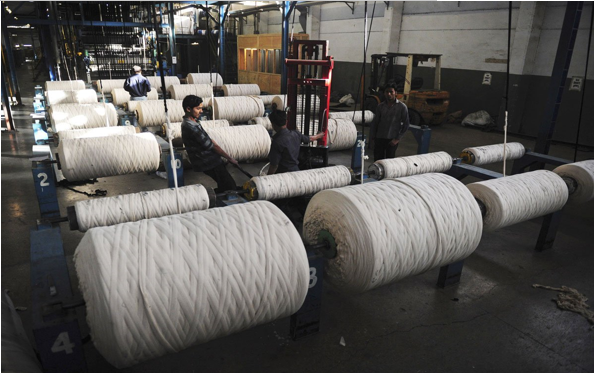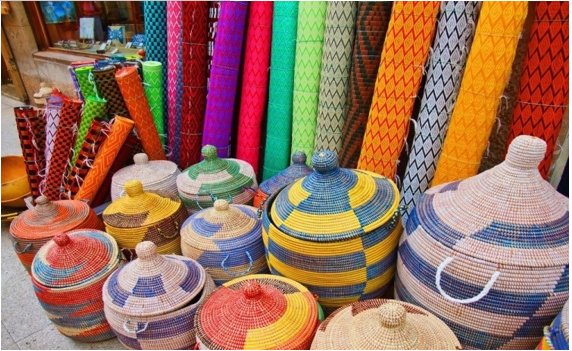آئی این پی ویلتھ پی کے
Ahmed Khan Malik
Karachi’s cottage industry lacks innovation, resulting in poor integration with modern economic systems and low productivity, experts told WealthPK.

The cottage industry employs thousands of people, especially women and informal workers, contributing significantly to household incomes. Yet this sector contributes only marginally to GDP and export revenues.
“The majority of these enterprises operate without business training, market intelligence, digital tools, or scalability plans,” said Moeez Siddiqui, an industrial sector expert.
He pointed out that in a global economy increasingly valuing sustainability and craftsmanship, Karachi’s cottage products should compete on the international stage.

He noted that manual production methods dominate the sector. "From looms to kitchen-based food processing, there is little adoption of semi-automated tools or digital platforms. This not only limits productivity but also creates quality inconsistencies that deter buyers, especially in export markets,” he said.
Siddiqui pointed out that cottage enterprises are largely disconnected from formal supply chains, wholesalers, and retail platforms.
"Most products are sold through word-of-mouth, local bazaars, or intermediaries who take a large share of the profits. Few producers understand branding, packaging, or customer targeting — areas critical for market penetration and revenue growth,” he said.
Siddiqui said there is a noticeable absence of micro-investment and skill-building opportunities for these businesses. “Without capital upgrades or business development support, most entrepreneurs remain trapped in a cycle of subsistence-level production.”
“Over 70% of Karachi’s cottage businesses are unregistered. The informal nature limits access to financing, insurance, or legal protections. Women — who constitute a significant portion of this workforce — often face mobility restrictions and lack access to professional networks and digital platforms,” he pointed out.
Hayat Soomro, a textile sector researcher, said that Karachi’s cottage industry offers significant upside for investors, social entrepreneurs, and development agencies.
He said that e-commerce integration, especially on platforms like Etsy, Amazon Handmade, and local digital marketplaces, could instantly scale visibility and demand. “Digital skills training paired with mobile-based payment systems can bridge the tech divide.”
Soomro suggested that creating artisan clusters or cooperatives can pool resources, standardise quality, and improve bargaining power with buyers and exporters. “This model has proven successful in India, Vietnam, and Morocco.”
He highlighted that government and business collaboration in areas such as vocational training, financing, and export facilitation could jump-start innovation. “Pakistan’s trade bodies and chambers of commerce have a key role to play in providing platforms, certifications, and access to exhibitions.”
Soomro said that there is growing global interest in socially responsible investing. “Karachi’s cottage industries, with their gender inclusivity and sustainability potential, are prime candidates for grants, low-interest loans, and impact funds.”
He said that Karachi’s cottage industry is an overlooked economic engine. “It has the raw materials — skilled labour, cultural appeal, and entrepreneurial spirit — but lacks the structure and support needed to thrive in a modern economy.”
"For investors, incubators, and trade organisations, this is not just a development issue — it’s a business opportunity. Strategic innovation and targeted investment could make this sector thrive exponentially,” he noted.
Credit: INP-WealthPk


